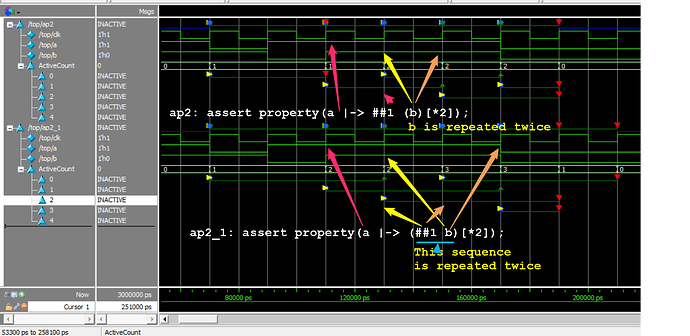In reply to ben@SystemVerilog.us:
In reply to rkg_:
Addressing your second question first
http://systemverilog.us/vf/rpt2.sv
// After the |-> ##1 the sequence (b} is repeated twice
ap2: assert property(a |-> ##1 (b)[*2]);
// After the |-> the sequence (##1 b) is repeated twice
ap2_1: assert property(a |-> (##1 b)[*2]);
Hi Ben, I don’t get the difference. When I see both and try to rewrite the repetition operator I get
##1 b ##1 b
for both style. What am I missing?
